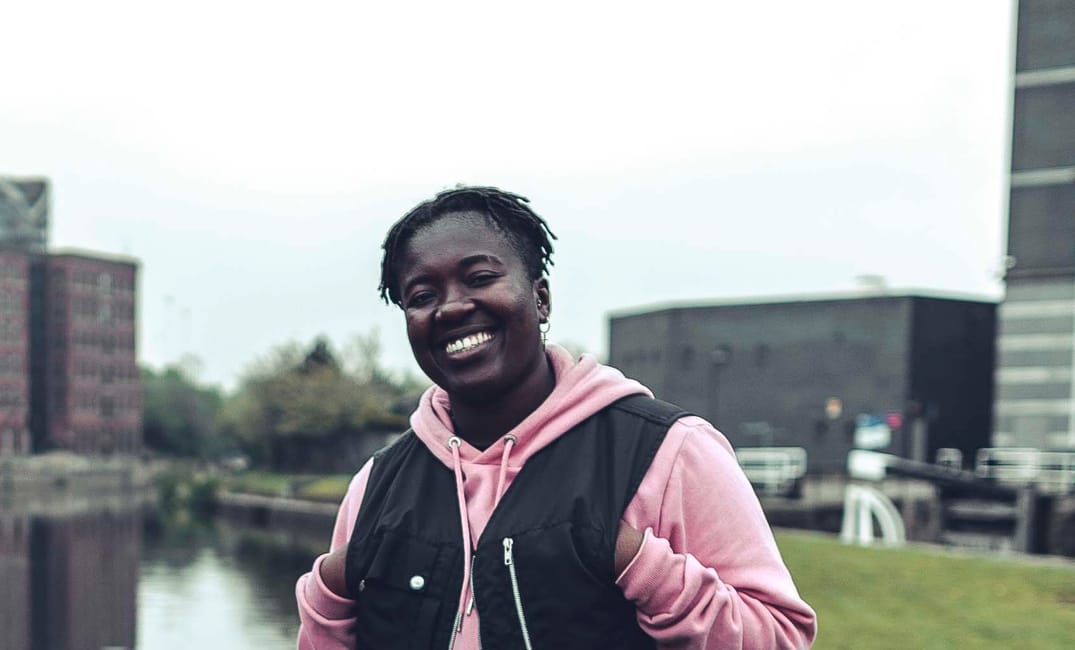For many young people, university is a life-defining moment. You live an independent life for the first time, make loads of new mates, maybe fall in love and probably study at least a little along the way.
But for many black students university can be a difficult time, having to be away from spaces where they are more able to be their authentic selves for the first time. Enter Melz Owusu, who was the Education Officer at Leeds Uni, and is due to start a PhD next academic year. Melz has a radical idea that’s gaining traction, to set up “The Free Black University” with a decolonised curriculum at its core.
Melz is resolute that traditional university structures haven’t been good enough for black students. “Universities have consistently failed black students and people of colour in general. The so-called progress they are making in terms of fostering a healthier environment for black students is occurring far too slowly. Universities are inherently colonial and I’m not sure they can ever be decolonised. If the aim of education is to transform the world, then we need to create new independent spaces where radical knowledge can be learnt.”
So far, since launching a few weeks ago, their Go Fund Me page has had around £80,000 worth of donations, which will go towards setting up the university, including a physical base for it. Melz says “a physical presence is key, that will come when we have the funds to make it happen. Somewhere in London like Lambeth, or Croydon initially, but we hope to gain more physical spaces in other places as we gain more traction”.

So in what ways are universities colonial? Melz explains that it’s a deeply structural way of educating students biased in favour of whiteness. “Universities are colonial often in terms of the money used to initially build it, it’s history, it’s curriculum and the attitudes of the people teaching you”. In short, white supremacy is soaked into everything about how universities operate, which has a really negative impact on young black people.
The impact on young black people’s self-esteem can in turn have an awful effect on their mental health. An OFS report showed that that black students with mental health conditions are being failed. Barely three-quarters remain in study beyond their first year; of those who reach their final year barely half get a 1st or a 2:1; and they are less likely to go on to a graduate job or further study. The book “Taking Up Space” written by Chelsea Kwakye and Ore Ogunbiyi centres around their experience in elite Russell Group universities as two black women and reveals that existing in environments where you simply do not see yourself reflected has a huge pressure on your mental health.

Self-care is a core part of Melz’s approach. “Healing is a massive strand of the work that we want to do as part of the Free Black University. Many black students leave university traumatised. This trauma comes from the colonial fabric of these institutions, of never seeing yourself represented in the curriculum, or your textbooks, or your lecturers. We want to create a transformative space where you’re being affirmed and cared for, and addressing the trauma you’ll have already experienced. We’re looking at things like community healing, mental health support and other routes to better wellbeing as well.”
Another issue young people care a lot about is climate change, something The Free Black University is already focusing on as one of it’s core aims. Melz tells us “climate justice is part of our broader vision, because climate change is inherently caused by colonialism and capitalism. We can’t sustain the environment along capitalism lines. Climate change and anti-colonialism are intertwined issues, and we need so much more than science to fix this problem. It’s a huge social issue as well.”
Finally, where do current universities sit in all of this? We’ve heard platitudes about how “black lives matter” and a few musings about looking into the diversity levels of students and lecturers. But will they really be willing to enact actual change? Melz has called directly on universities to make a substantial contribution to The Free Black University, as a way of redistributing wealth to black students who’ve been historically underserved. “It’s fundamental that they contribute, if they want to actually do the work that they say they’re committed to. They need to realise a lot of their riches comes from slavery and colonialsm. Their wealth must be redistributed back into the community otherwise it’s just empty platitudes.” Clearly, receipts need to be shown if universities want to fully support black students in a way that is real.
We live in different times, where lockdown has forced us to confront these very difficult issues. An idea like The Free Black University would have been thought of as way too radical by most even just a couple of months ago. Maybe this is the watershed moment young black people needed to finally have an education system structured around them and their needs.
If you’d like to donate to The Free Black University you can visit their Go Fund Me Page here.
Thanks for reading our article! We know young people’s opinions matter and really appreciate everyone who reads us.
Give us a follow on Instagram, Twitter and Facebook to stay up to date with what young people think.

